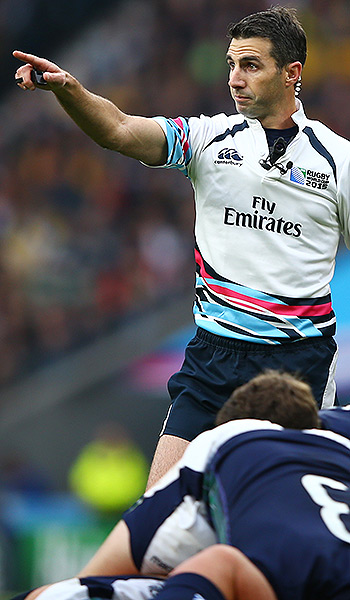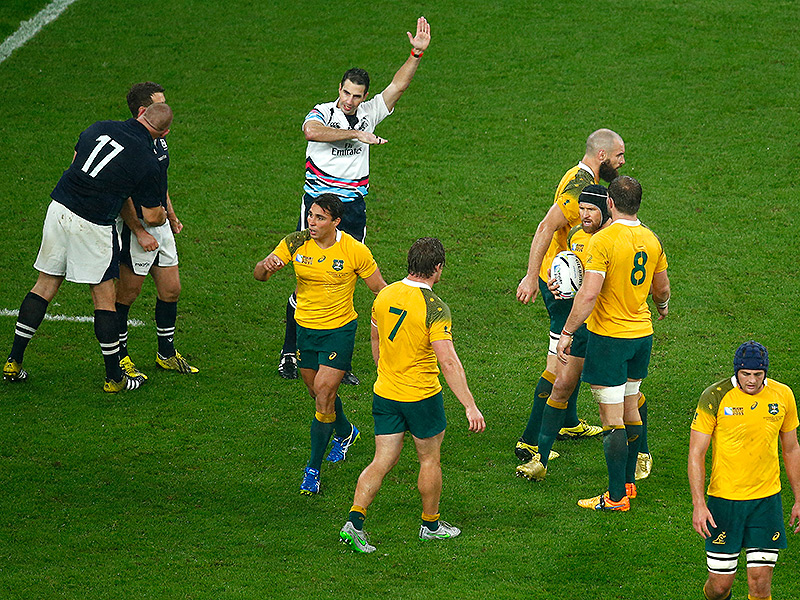Joubert, Twickenham and thereafter
Time passing can always be a long time.
For Craig Joubert five months must seem a world of difference.
On 18 October 2015 he refereed the match between Australia and Scotland at Twickenham, and was vilified in many quarters.
On 12 March 2016 he refereed the match between England and Wales at Twickenham and – apart from the 'praise' of silence – he was explicitly praised for his performance.
He was the same person refereeing the same game of rugby at the same venue, but the difference was enough to have some refer to him as the "comeback king" after a “sharp and efficient return to Twickenham for England versus Wales”.
The difference was one decision perceived by many to have been a wrong decision and a rapid exit from the field when time was up. 
In the first match the crowd favourite lost; in the second the crowd favourite won.
In 2011 Joubert had refereed the World Cup Final, the highest profiled match of several notable finals – including Currie Cup finals, Super Rugby finals and finals on World Rugby's Sevens circuit.
Obviously he is highly regarded as an outstanding referee.
The controversial decision was the penalty against Scotland that enabled Australia to defeat Scotland 35-34 at Twickenham. A debatable penalty for offside at a knock-on in some chaotic play with the ball bouncing around.
It was a tough situation, and all that he could use was his own witness immediately processed – for recourse to the TMO and the big screen in such instances was not allowed at the 2015 World Cup.
In real time it seemed to many that it was the correct decision. One of the legends of the game, Brian O'Driscoll, said that in real time he too thought it was the correct call. It was a complex decision which, with the advantage of hindsight, he may well have handled differently.
His rapid departure at the end of the match could not change the score, and many referees have for various reasons left the field immediately at the end, some as a matter of principle, not wishing to outstay their welcome.
The wise heads who govern the world's referees, whose Chairman is the Scot John Jeffery, understood Joubert's ability and immediately put him back on the horse for the England-versus-Wales match at Twickenham, a decisive match in the Six Nations.
Comeback king? Perhaps exaggerated, for he was not dropped.
There are other referees who were dropped by the then International Rugby Board and came back – men in recent times like Tony Spreadbury, Mark Lawrence and Wayne Barnes.
Joubert was not dropped but it must have taken mental toughness to go back to Twickenham and then, putting distractions aside, he refereed with his usual calm and assured manner, a clear communicator who always seems effortlessly in the right place "sharp and efficient".
By Paul; Dobson
@rugby365com
















































